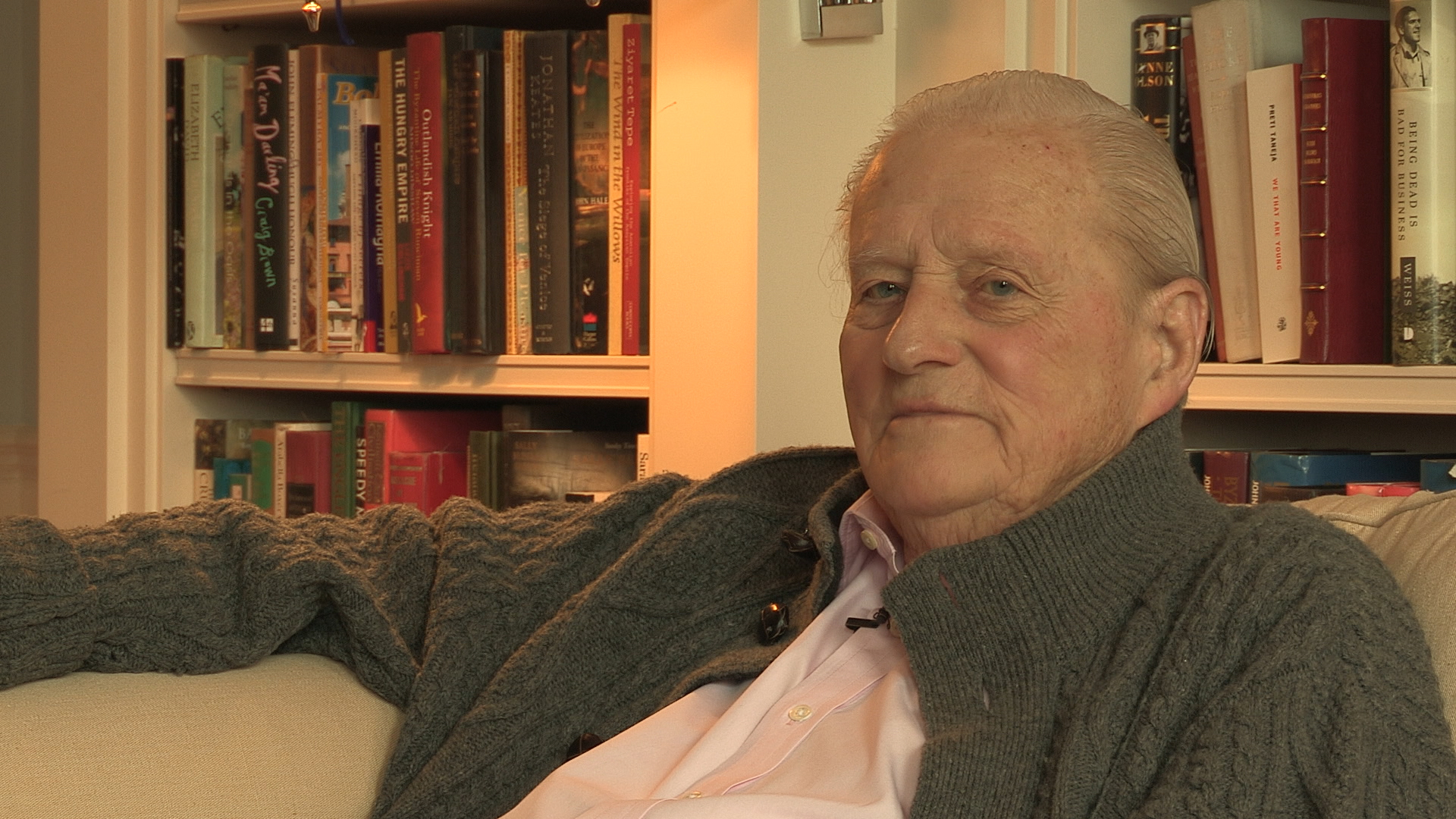NEXT STORY

Filming in Sicily
RELATED STORIES

NEXT STORY

Filming in Sicily
RELATED STORIES


|
Views | Duration | |
|---|---|---|---|
| 101. When writing, start at the beginning | 60 | 00:30 | |
| 102. Attempting to gain access to Mount Athos | 45 | 01:36 | |
| 103. A world without women | 47 | 02:10 | |
| 104. The austerity and beauty of life on Mount Athos | 42 | 03:16 | |
| 105. When is Mount Athos like Eton? | 42 | 02:41 | |
| 106. Mount Athos then and now | 41 | 02:12 | |
| 107. Setting out to cross the Sahara Desert | 38 | 04:50 | |
| 108. Camels and camps in the Sahara | 35 | 04:06 | |
| 109. An eventful homeward journey | 40 | 04:32 | |
| 110. Time suspended | 40 | 02:35 |


When we got back to Tamanrasset they all went home, but I stayed on because I wanted to do and see the prehistoric cave paintings in the Tassili [n'Ajjer] and there happened to be a tourist group leaving the next day, so I joined them and stayed another week or so in the Sahara. They are most extraordinary, pictures of men with huge, round, what appeared to be sort of diving bells on their heads, you know, which makes everybody immediately say, ‘Oh yes, well, you know, visitors from outer space’, but it's very, very strange and there was this extraordinary feeling of suspension in time. I mean, I remember one day... one's always looking, of course, in the heat of day one's always looking for shade, of which there is virtually none. What we would do is we would string a piece of cloth across two Land Rovers and sit between them and have the shade that way. But one day, I remember, I was just sort of walking and saw... there was a very, very narrow little cave, I mean, a lot of rocks and mountains around. It's not all sand by any means. And there was this little cave and I suppose it was only about six-foot deep, if that, but it provided a little bit of welcome shade, so I went in there for a minute and saw, on the ground around me, lots of little, curious little white pockmarked pieces of shell. And I realised it was ostrich egg. There haven't been ostriches there for the last 3000 or 4000 years, but 3000 or 4000 years ago, a man sat in that little cave, just where I was, eating his ostrich egg and leaving the shell on the floor, still there. I was the first person in there since. You know, that's the sort of... it's a very strange feeling and, again, I wrote another book about that. That was, I think, the first book about the Normans had come out by then and then The Sahara. I loved writing the Sahara book, it was lovely. Again, it's got lots of pictures in and that sort of thing.
John Julius Norwich (1929-2018) was an English popular historian, travel writer and television personality. He was educated at Upper Canada College, Toronto, at Eton, at the University of Strasbourg and on the lower deck of the Royal Navy before taking a degree in French and Russian at New College, Oxford. He then spent twelve years in H.M. Foreign Service, with posts at the Embassies in Belgrade and Beirut and at the Disarmament Conference in Geneva. In 1964 he resigned to become a writer. He is the author of histories of Norman Sicily, the Republic of Venice, the Byzantine Empire and, most recently, 'The Popes: A History'. He also wrote on architecture, music and the history plays of Shakespeare, and presented some thirty historical documentaries on BBC Television.
Title: Time suspended
Listeners: Christopher Sykes
Christopher Sykes is an independent documentary producer who has made a number of films about science and scientists for BBC TV, Channel Four, and PBS.
Tags: Sahara
Duration: 2 minutes, 35 seconds
Date story recorded: 2017
Date story went live: 03 October 2018